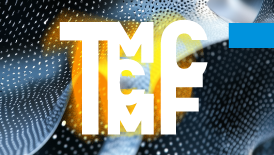Мой профиль

язык курса
длительность курса
понадобится для освоения
для зачета в своем вузе
The purpose of the course is to provide students with knowledge about modern technologies and methods for using composite materials with carbon fillers and their application in various industries.
The course will help train specialists in the field of processing of hydrocarbon raw materials, creating effective chemical means for protecting agricultural plants and animals, new materials, including advanced alloys (superalloys), advanced polymers, advanced composite materials, advanced ceramic materials, metal powders and metal-powder compositions, and metamaterials.
The purpose of the course is to provide students with knowledge about modern technologies and methods for using composite materials with carbon fillers and their application in various industries.
Composite materials with carbon fillers allow you to make innovative technical decisions and create products, helping consumers in all industries to make their production more reliable, safe, cost-effective and competitive.
The entire course is designed for 4 weeks. As part of this course, the following subsections will be available to you:
Module 1. Introduction to composite materials with carbon fillers
Module 2. Composite Materials Industrial Application
Module 3. Polymer composite materials (PCM) and polymer matrices
Module 4. Product manufacturing technologies using reinforcing fillers and thermosetting plastics
This course allows you to obtain the following knowledge about composite materials:
язык курса
длительность курса
понадобится для освоения
для зачета в своем вузе

Доктор химических наук, Профессор
Должность: Профессор кафедры химической технологии и новых материалов, Московский государственный университет

Кандидат технических наук, доцент
Должность: декан технологического факультета, доцент кафедры Химические технологии
По данному курсу возможно получение сертификата.
Стоимость прохождения процедур оценки результатов обучения с идентификацией личности при оплате до 30 сентября - 1800, далее - 2800 ₽.
Сертификат участника обычно выдается при достижении 60% от общего рейтинга при условии сдачи работ до жесткого дедлайна. Сертификат с отличием, как правило, выдается при достижении 90% от общего рейтинга при условии сдачи работ до мягкого дедлайна.